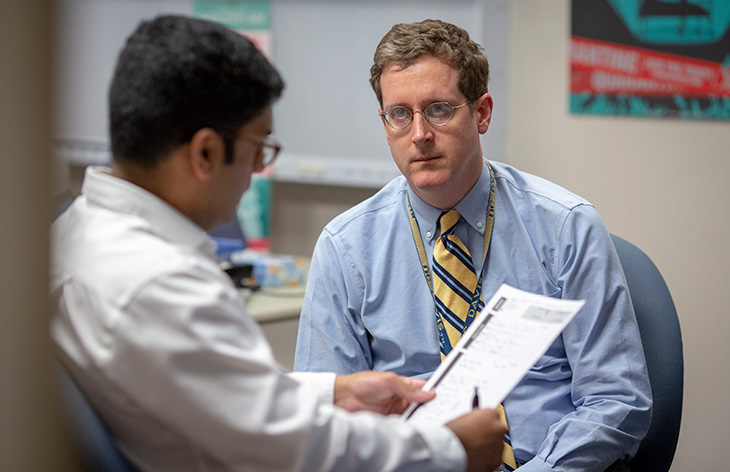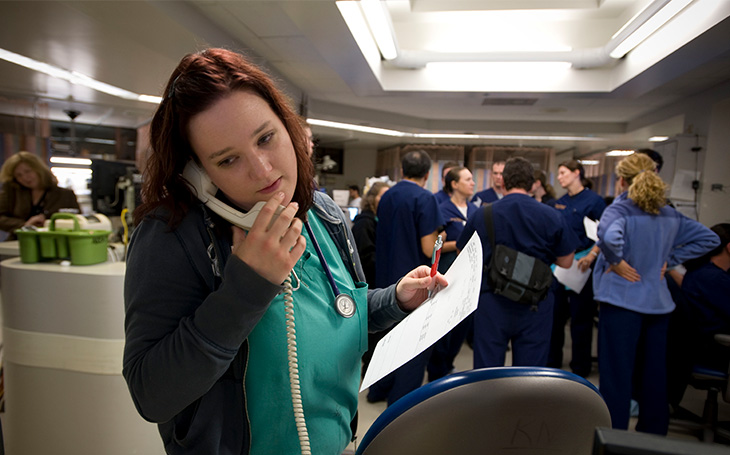A clinical trial led by UC Davis Health physicians aims to improve the long-term use of buprenorphine, a critical medication for treating patients with opioid use disorder (OUD). The new study focuses on patients prescribed buprenorphine in emergency departments, where there is a need for effective follow-up care.
Opioid addiction remains a significant public health crisis. About 9,000 people die each month from an overdose in the U.S. Three-quarters of those deaths involve opioids. Buprenorphine has proven effective in reducing overdose risk and saving lives, but patients often stop using the medication after about six months.
"Most people with OUD require buprenorphine for years to effectively manage their condition. This study aims to identify how we can keep these individuals engaged in care over the long term to prevent overdose deaths and support recovery," said Stephen Henry. Henry is the study's co-principal investigator, a primary care physician and associate professor of internal medicine at UC Davis Health.
The $6.4 million study is funded by the Patient-Centered Outcomes Research Institute (PCORI). It will explore the efficacy of telehealth — via video or phone visits — compared to in-person follow-up appointments. The project is designed to address barriers that many patients face, including low income, lack of transportation and social instability.
"Patients struggling with OUD often experience social chaos, making it difficult for them to attend traditional outpatient appointments. Telehealth could offer a more accessible and less stigmatizing option for follow-up care," noted Aimee Moulin, professor of emergency medicine and psychiatry and behavioral sciences. She is the co-principal investigator of the study.

In-person versus remote outpatient visits
This innovative study will take place in three emergency departments participating in California's "CA Bridge" program, which encourages substance use treatment in emergency settings. Patients starting buprenorphine treatment in the emergency department will be randomly assigned to receive follow-up care either via telehealth or in person at outpatient clinics.
By comparing treatment outcomes, the researchers aim to determine whether telehealth referrals can lead to higher rates of outpatient treatment engagement, long-term buprenorphine retention and overall patient satisfaction. The study will also examine the impact of patient choice in determining their follow-up care.

Implications for emergency departments treating vulnerable patients
The significance of this research extends beyond individual patient outcomes; it also seeks to address disparities in OUD treatment. Patients accessing care in emergency departments are often low-income, non-white and unstably housed, highlighting the urgent need for tailored approaches to treatment.
"This population is traditionally invisible or excluded from research studies," Henry said. "Our hope is to reach the most vulnerable patients who have the highest risk of overdose death."
The findings from this study also have the potential to inform clinical practices, not only in California, but also in the nearly 20 other states implementing similar emergency department-based OUD treatment programs.
Our hope is to reach the most vulnerable patients who have the highest risk of overdose death." -Stephen Henry, primary care physician and associate professor of internal medicine
The researchers hope the study results will give emergency physicians guidance on the best place to refer people with opioid use disorder to give them the best chance of staying in treatment and recovery.
"Buprenorphine stays in the system for some time. It blocks the activity of opioid medications, like fentanyl, so that patients are less susceptible to losing consciousness and stopping breathing," Moulin explained. "For patients with opioid addiction, this medication is a lifesaver."
For patients with opioid addiction, this medication is a lifesaver." -Aimee Moulin, professor of emergency medicine and psychiatry and behavioral sciences
As opioid addiction continues to pose a severe threat to public health, this study represents a significant step toward improving care for one of the most vulnerable populations. The hope is that enhanced retention strategies for buprenorphine will lead to better recovery outcomes and a reduction in overdose fatalities.
This study will be administered by the UC Davis Center for Healthcare Policy and Research. It builds on collaborations and pilot data that Henry and Moulin conducted when they received a Cultivating Team Science award from the School of Medicine's Office of Research.
Note: This award has been approved pending completion of PCORI's business and programmatic review and issuance of a formal award contract.








